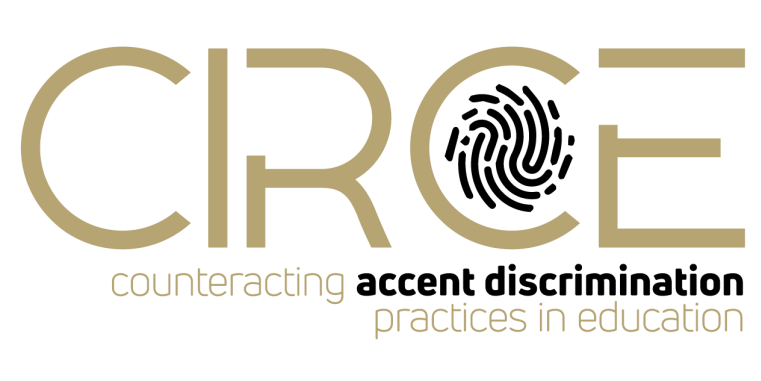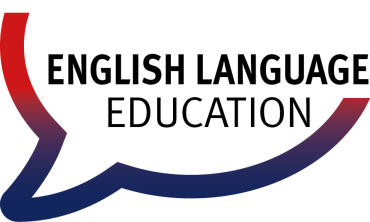

ERASMUS+ project “Counteracting accent dIscrimination pRactiCes in Education” (CIRCE)
Grant Agreement n° 2022-1-IT02-KA220-SCH-000087602 OID E10209118
Duration: until 30/12/2025
Accents: foreign, regional, local. We don’t talk about them much but they’re an integral part of our lives. And they’re always with us: we are constantly carrying them around, whether as a millstone or a trophy. “I like your accent”, “your accent irritates me”, “your accent is so cool”. Accents are a linguistic phenomenon (they regard the way we speak, the sounds, the intonation…) but also a social one: if my interlocutor identifies me as a foreigner, as a migrant, as “different”, this identification has an impact, for better or worse, on my everyday life. Our accents are also a badge of identity: they convey my personal story, because I am the language that I speak and how I speak it.
Accents have a substantial impact in the workplace (for example, in job interviews), in legal contexts (believing a witness with a foreign accent is apparently harder than believing a witness without one) and in school settings. Accent discrimination in this third setting – schools - is precisely the focus of the ERASMUS+ project “Counteracting accent dIscrimination pRactiCes in Education” (CIRCE). The project, which has just got underway, will last for 36 months and will be led by the University of Siena (Italy) in collaboration with the Italian National Research Council (CNR), the University of Münster (UM, Germany), Universität Hamburg (UH, Germany), International Burch University (IBU, Bosnia and Herzegovina), and the University of Évora (Portugal).
The CIRCE project addresses accent discrimination in education. The project acronym (CIRCE) alludes to the goddess of the human voice, who precisely because of this characteristic was viewed suspiciously by the gods: one of the earliest examples of ‘accentism’. The school environment is a hotspot for investigating this issue: students are exposed to different accents and form and reinforce their attitudes and beliefs towards them also on the basis of peer pressure. Teachers are also confronted daily with regional and non-native accents of the national language, and may unconsciously succumb to prejudice and negative evaluations of non-standard varieties. The scientific literature shows that this can occur even in people with high sensitivity to linguistic diversity and multilingualism. Accentism is serious, because it can result in disparaging and hypercritical attitudes toward students who are already at risk of dropping out of school.
CIRCE aims to raise awareness about accent discrimination in the school and university environment, and to develop in students and teachers a greater tolerance towards accent variation. Accentism is in fact a phenomenon that is still little known, and the general lack of awareness that surrounds it makes it hard to pin down its effects. But it is actually a powerful discriminatory mechanism, and it is essential to counter its mechanisms by promoting knowledge of how it works.
The approach being taken by CIRCE is
a) transnational: by involving partners from different countries, CIRCE will offer a broad picture of the phenomenon, and make it possible to compare linguistic prejudices related to the languages of the different countries in which the project partners are located;
b) integrated: the project addresses all the actors in the school environment: students, teachers, and families;
c) sustainable: CIRCE will develop tools that can be reused by students and teachers, and, most importantly, teaches a method that makes it possible to ferret out the phenomenon, so that it can be discussed and dealt with;
d) inclusive: CIRCE embraces the principles of citizen science by including its target stakeholders in the research process not as objects of scientific dissemination but as subjects contributing actively to the study of the phenomena under investigation. For this reason CIRCE aims to build together with students and teachers an investigation protocol to analyze the phenomenon of accent discrimination;
e) data-savvy: in today’s knowledge society data is a valuable resource. CIRCE is aware of this and is committed to ensuring that the data collected are FAIRified and hosted in the CLARIN-IT archives.
The project will develop tools and resources to innovate school curricula and offer materials that enable teachers and educators to accommodate accent variation in their classrooms and other learning settings.
More information can be found on the main project side CIRCE
Project Coordinator:
University of Siena, Italy
Local coordinator /Team at the University of Münster
Philipp Meer & Prof. Dr. Frauke Matz
Jun.-Prof. Dr. Julia Reckermann
Disclaimer: Funded by the European Union. Views and opinions expressed are however those of the author(s) only and do not necessarily reflect those of the European Union or the European Education and Culture Executive Agency (EACEA). Neither the European Union nor EACEA can be held responsible for them.


